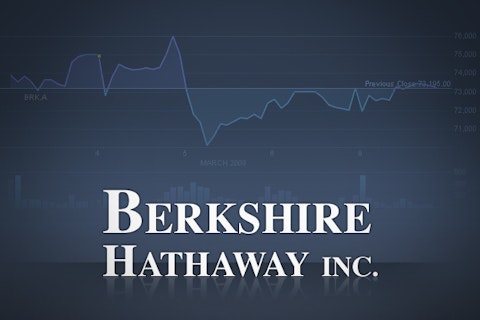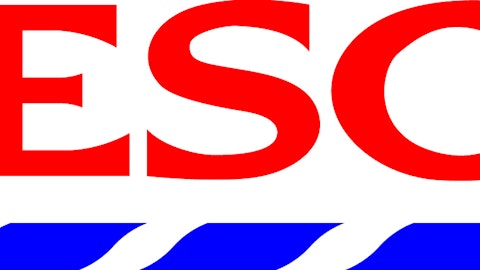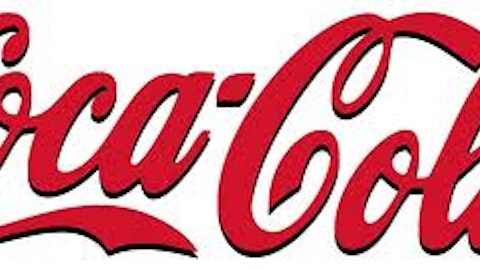LONDON — Last week, Berkshire Hathaway Inc. (NYSE:BRK.B) boss Warren Buffett released his annual letter to shareholders.

If you’re a U.K. investor just starting out, U.S. investing legend Buffett may be new to you — perhaps your interest in the man has been piqued by reading about how he’s taken a big stake in Tesco PLC (LON:TSCO).I can tell you that Buffett’s annual letters never fail to educate, amuse, and enrich. You’ll find abundant pearls of wisdom in his witty, colourful, and incisive commentaries — as, indeed, will old hands.
586,817% and counting
Let’s start with why Buffett has captured the attention of millions of investors around the world. The bottom line is, his Berkshire Hathaway group has an outstanding record of increasing shareholder value over the best part of five decades.
Between 1965 and 2012, Berkshire’s book value per share has increased by a mind-boggling 586,817%, representing a compound annual growth rate of close to 20%. Such gains over such a long period are unparalleled.
Successful businesses
Buffett’s strategy of wealth creation for Berkshire is something ordinary investors like us can learn from in weighing up companies we may want to invest in.
Successful businesses generate cash. Buffett is clear about what a company should do with that cash, in the following order of priority:
First, examine reinvestment possibilities offered by its current business for increasing the competitive advantage over rivals.
Second, look at acquisitions that are likely to make shareholders wealthier on a per-share basis than they were prior to the acquisition.
Third, consider repurchasing the company’s own shares to enhance each investor’s share of future earnings.
Fourth, by default, pay dividends to shareholders.
Reinvestment and acquisitions
By reinvestment in the business, Buffett is referring to spending on projects “to become more efficient, expand territorially, extend and improve product lines or to otherwise widen the economic moat separating the company from its competitors.”
When we, ourselves, are considering companies to invest in, we can check how intelligently management is reinvesting in the business by looking at such things as whether market share is being maintained/increased, and whether margins are being maintained/grown relative to rivals.
Buffett considers small bolt-on acquisitions that can easily be integrated into existing operations as part of the reinvestment in the business. The acquisitions referred to in stage two of his four steps are those that add something new to the company — some form of diversification.
When we are considering companies to invest in, we can check whether management has a good track record of adding shareholder value through making such acquisitions.
Repurchasing shares
Buffett is strict about when it’s right for a company to repurchase its own shares. Again and again over the years, he has stressed that the only time to do share buybacks is when the shares are available “far below,” “well below,” or “at a meaningful discount from” intrinsic value — and “conservatively calculated” intrinsic value at that.
Last year, Berkshire spent $1.3bn repurchasing its own shares. At the moment, Buffett is prepared to pay up to 120% of Berkshire’s book value for the shares.
So, if you’re interested in buying shares in Berkshire yourself, you have it from the horse’s mouth that 120% of book value represents a meaningful discount to conservatively calculated intrinsic value at the present time.
Dividends
Berkshire doesn’t pay dividends, but not because Buffett is against them per se. It’s simply that he has always seen opportunities in steps one to three for employing Berkshire’s cash flows more fruitfully for shareholders.
At the moment, the discount to intrinsic value is such that share buybacks are an efficient way for Berkshire to employ excess cash, but Buffett says that if things change materially “we will re-examine our actions.”
Buffett is perfectly happy for the quoted companies in Berkshire’s portfolio — American Express Company (NYSE: AXP), The Coca-Cola Company (NYSE: KO), International Business Machines Corp. (NYSE: IBM), and Wells Fargo & Co (NYSE: WFC) are his “Big Four” — to use excess cash to make share repurchases “at appropriate prices,” or to otherwise pay him dividends. He says: “We applaud their actions and hope they continue on their present paths.”
Buffett no doubt feels the same about his big U.K. investment in Tesco PLC (LON:TSCO), whose shares — at 380p — are currently trading on an historically low earnings multiple, and offer investors a healthy 4% dividend yield.
Berkshire’s 415,510,889 shareholding in Tesco (5.2% of the company) should net Buffett a dividend payout of something over £60m this year alone.
The article Words of Wisdom From Big Tesco Backer Warren Buffett originally appeared on Fool.com and is written by G.A. Chester.
G.A. Chester has no position in any stocks mentioned. The Motley Fool recommends Berkshire Hathaway. The Motley Fool owns shares of Berkshire Hathaway and Tesco.
Copyright © 1995 – 2013 The Motley Fool, LLC. All rights reserved. The Motley Fool has a disclosure policy.





